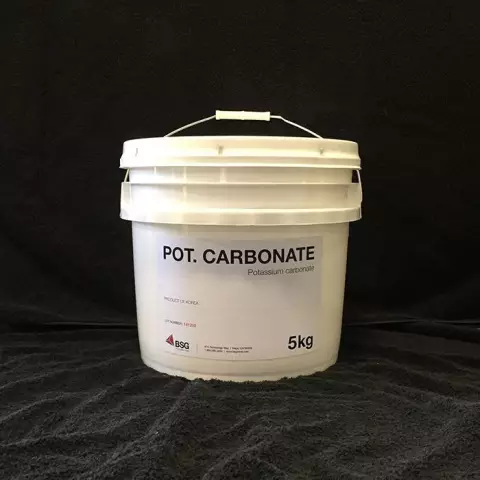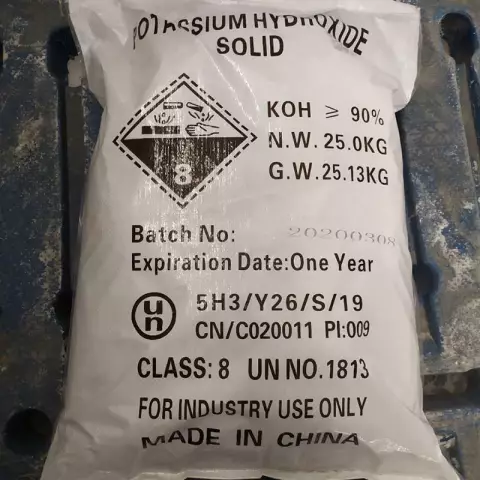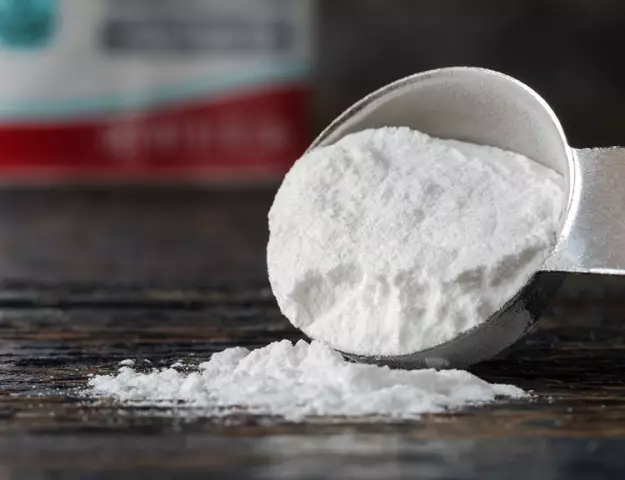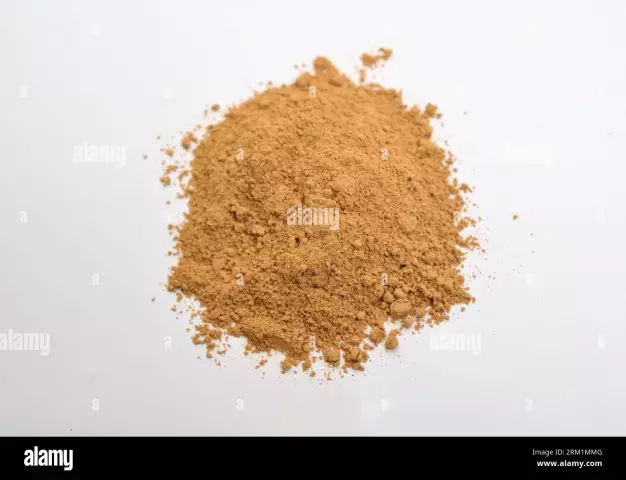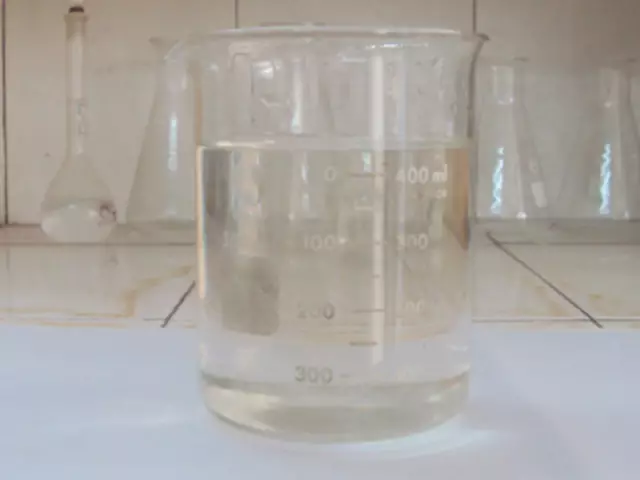- Author Rachel Wainwright wainwright@abchealthonline.com.
- Public 2023-12-15 07:39.
- Last modified 2025-11-02 20:14.
Potassium carbonate

Potassium carbonate (food additive E501, potassium carbonate, potash) is a fine-crystalline powder that is formed as a result of the interaction of carbon dioxide with a solution of potassium hydroxide.
Obtaining potassium carbonate
The ancient Romans and Greeks obtained this product from ash. They used potash mainly for washing, since it, creating an alkaline environment in the solution, breaks down fats that contaminate the fibers of the fabric.
In Russia, this substance was mined from the ashes of herbaceous plants and trees since the sixteenth century. The ash was poured with water and the fire was poured with this solution. The fire was evaporated, and at the bottom, potassium carbonate crystallized in a thick layer, which was then hollowed out with crowbars. To obtain one kilogram of the product, more than two cubic meters of wood were required.
Nowadays potassium carbonate is obtained by leaching algae or cereal ash with water. It is produced on an industrial scale by electrolysis of potassium chloride.
General properties of potassium carbonate
Potassium carbonate dissolves instantly in water, but absolutely insoluble in ethanol. Potassium carbonate melts at 891 ° C. The substance has a pronounced alkali taste and is odorless. The powder has a keratolytic and antimicrobial effect. Bactericidal is due to its alkaline properties. The higher the temperature of the solvent, the more pronounced its bactericidal properties.
Potassium carbonate applications
By its properties, potassium carbonate can act as a stabilizer, acidity regulator, baking powder, desiccant. It is used to create a homogeneous mixture of immiscible components - water and oil, water and fat.

In agriculture, the product is used as a fertilizer.
This compound is also used for disinfection of hitching posts and livestock buildings. The substance is added to ointments, liniment, anti-scab solutions to enhance the therapeutic effect of antiparasitic drugs.
Potassium carbonate is used in soap making, as well as in the production of liquid detergents.
The harm of potassium carbonate
The use of the food additive E501 in the food industry is limited due to the possible harm to human health.
If this powder gets on the skin, rinse thoroughly under running water, as it can cause extensive irritation and eczema.
In water, this substance forms a caustic alkali, which damages shoes and clothes, and forms ulcers on contact with the skin.
Found a mistake in the text? Select it and press Ctrl + Enter.

